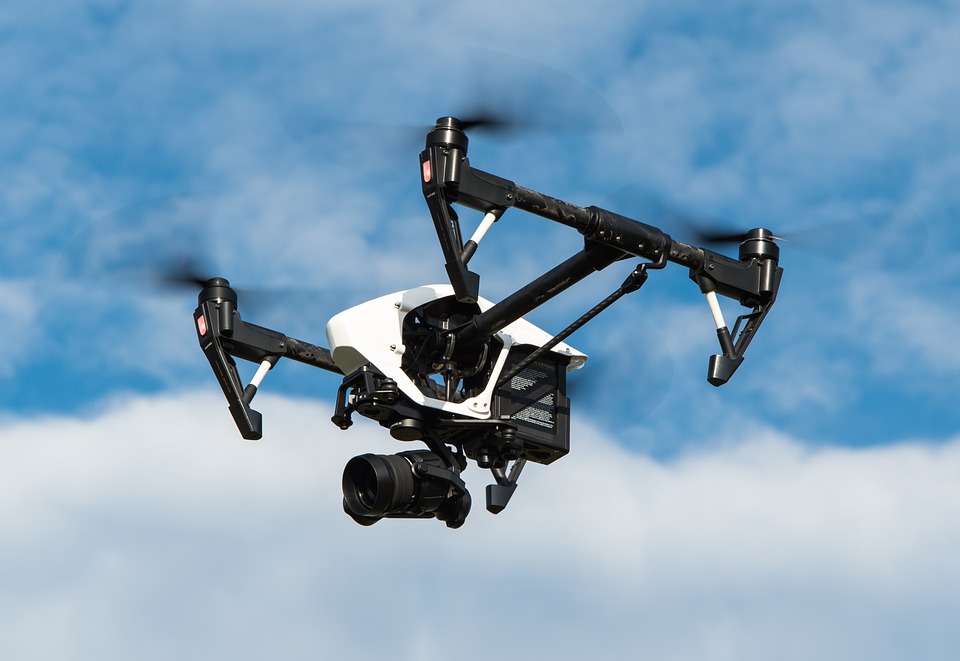
VANCOUVER— John Simpson is determined to use the novel experience he gained in a troubling search for his daughter to help others who have lost loved ones.
Ashley Simpson went missing in Salmon Arm, B.C., in April 2016, and this spring her father travelled there from Ontario for a second time. He believed her body might be along the banks of a river or creek.
The area had been flooded and it was too dangerous to search on foot, but Simpson had an idea. He told friends he wanted to borrow a drone, and was put in touch with a surprisingly young expert a 14-year-old boy with a fleet of drones and a strong commitment to his hobby.
“It really got me thinking,” said Simpson in a recent phone interview from his home in Niagara-on-the-Lake, Ont.
“Watching this young man, and his drone … He can go thousands of feet in the air and he can hover just three or four inches off the ground. If it was going to come to an obstacle, it would stop. … It’s absolutely amazing.”
Simpson hired the boy to search the mouth of the Salmon River where it flows into Shuswap Lake. Although his daughter wasn’t found, Simpson was resolved to get more drones into the hands of volunteer crews searching for missing people.
Since Ashley Simpson went missing last year at age 32, her family in Ontario has held an annual barbecue to fundraise for women’s shelters. This year, they added a golf tournament and her father used the proceeds to purchase four inexpensive drones, two of which he sent to a missing-women’s advocate in B.C.
RCMP wrapped up a wide-scale search of a Salmon Arm farm last week. Cpl. Dan Moskaluk said human remains found at the property were confirmed to belong to one person, 18-year-old Traci Genereaux. Her death is being treated as suspicious but no charges have been laid.
At least four other women, including Simpson, remain missing in the region.
Jody Leon of the Splatsin First Nation in Enderby, near Salmon Arm, organized a search party for the women this spring that covered more than 100 kilometres. Last week, she received the drones from Simpson and held a meeting for interested volunteers.
Leon said she’s connected with a number of experienced drone operators, including some with longer-range drones and another who will help volunteers get licensed under Transport Canada regulations. Their first drone search could be as soon as next week, she said.
“John Simpson has been a huge teacher for me in terms of resiliency,” she added. “In any situation, no matter how painful it is, you can still get up and keep fighting.”
Transport Canada currently requires anyone using drones for anything other than fun to obtain a special flight operations certificate. Applicants for the certificates are evaluated on a case-by-case basis according to criteria including proposed use, safety record and experience, Transport Canada said in a statement.
Even those with a certificate are not allowed to fly drones outside their visual line-of-sight. This makes it difficult for search and rescue crews to use them over distances, said Ali Miri, president of UAViation Aerial Imaging Solutions.
Search and rescue organizations in Kamloops and Coquitlam are participating in a pilot project that allows crews to use drones. The project is set to expand to more groups next year, said Andrew Morrison of Emergency Management BC.
There are limitations, including that drones can’t see through the tree canopy and weather conditions and battery life make it difficult to search large areas. But they have been useful in assessing hazards before volunteers enter an area and to pinpoint people’s locations using infrared cameras, Morrison said.
RCMP have access to drones but Moskaluk declined to say whether they were used in the search for Ashley Simpson. Salmon Arm Search and Rescue said they conducted a three-day ground search.
John Simpson doesn’t believe drones will now find his daughter. His aim is to help others who are searching for their loved ones, especially in the crucial first days after they go missing. He eventually hopes to have a Canada-wide network of volunteer drone search teams.
But he said he and his wife won’t ever give up searching for their daughter, a jack of all trades who loves to cook, travel and entertain children, and who turns 34 on Nov. 15.
“We’ll fight this right to the very end,” said Simpson. “We’ll bring our daughter home and lay her to rest here.”